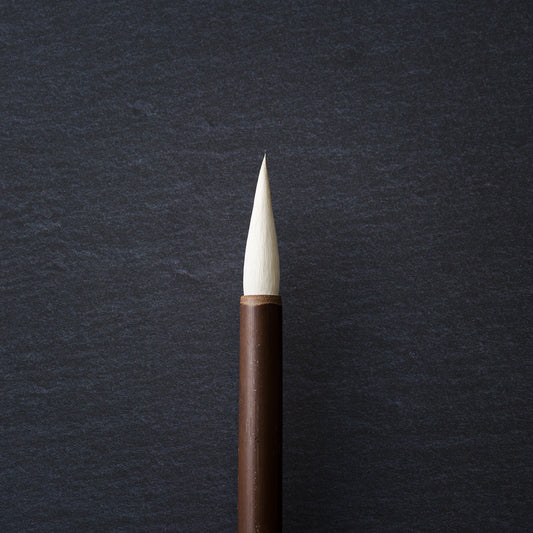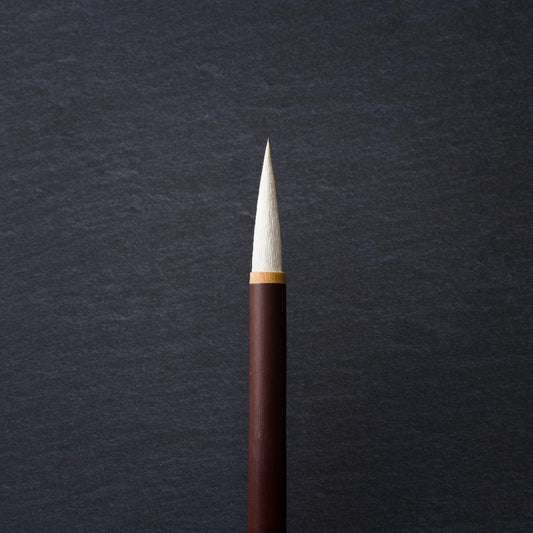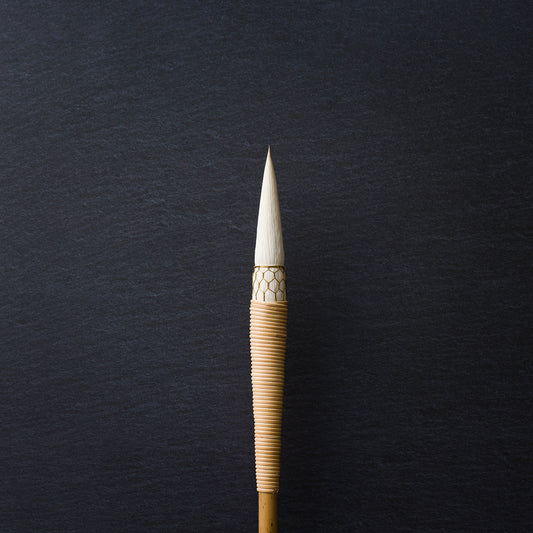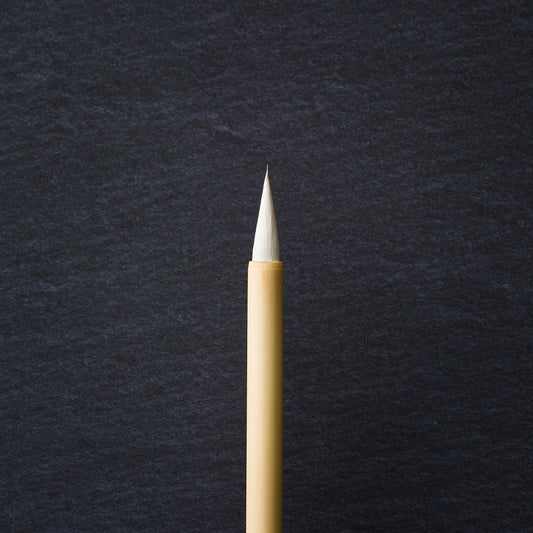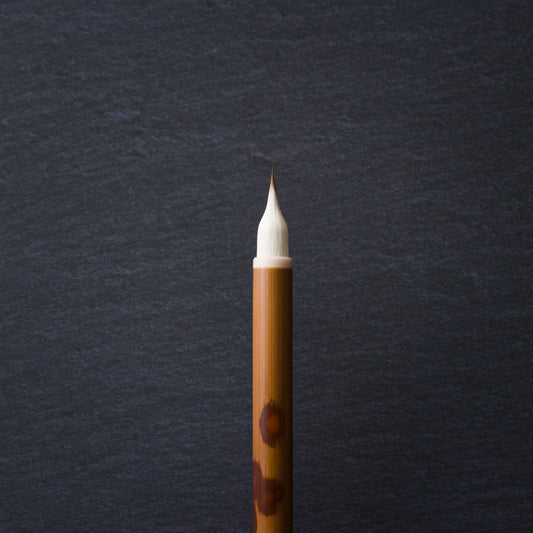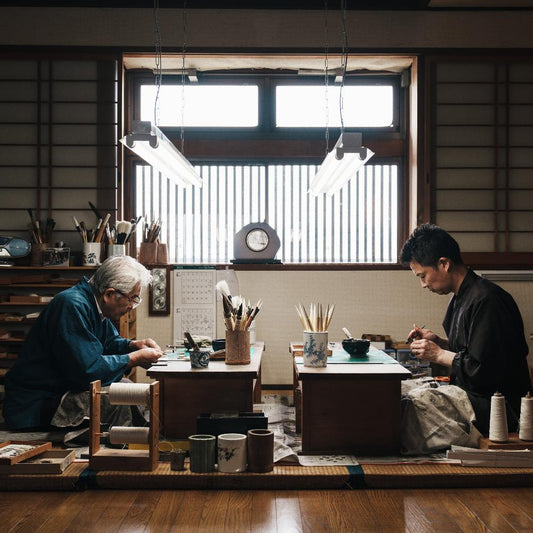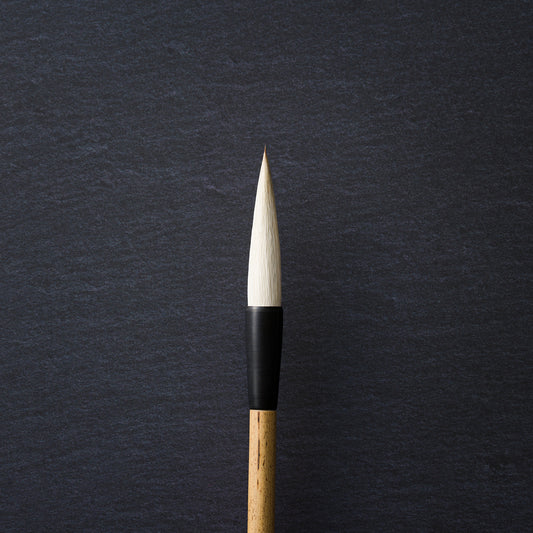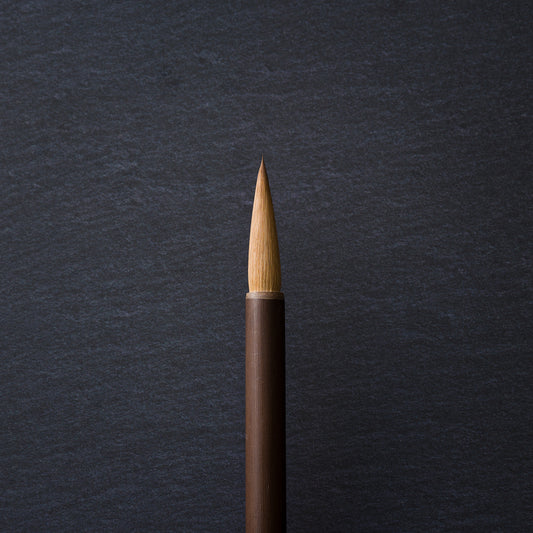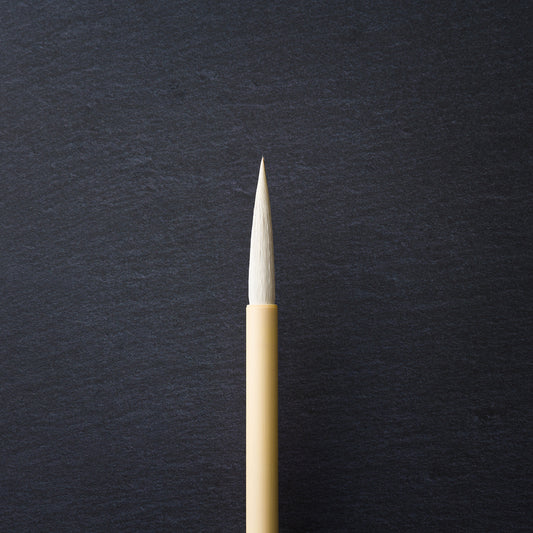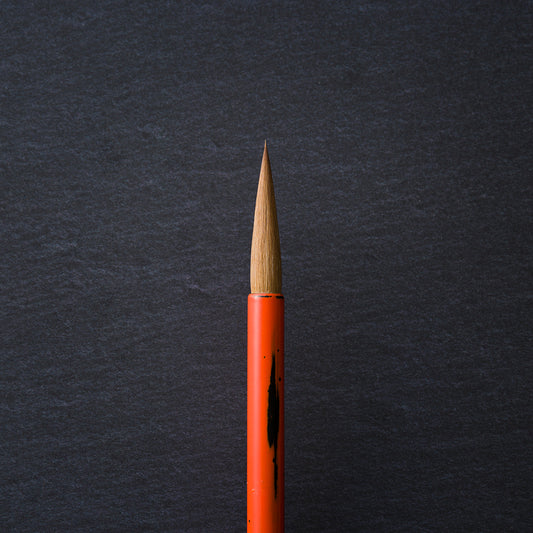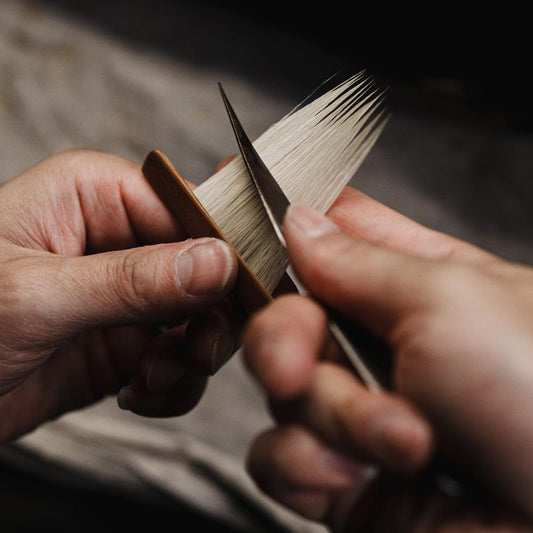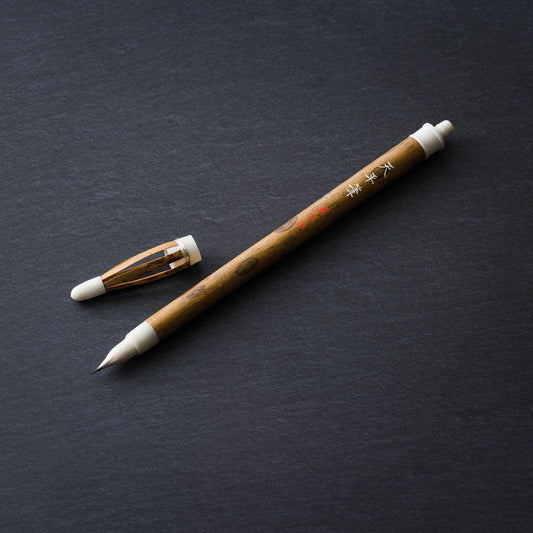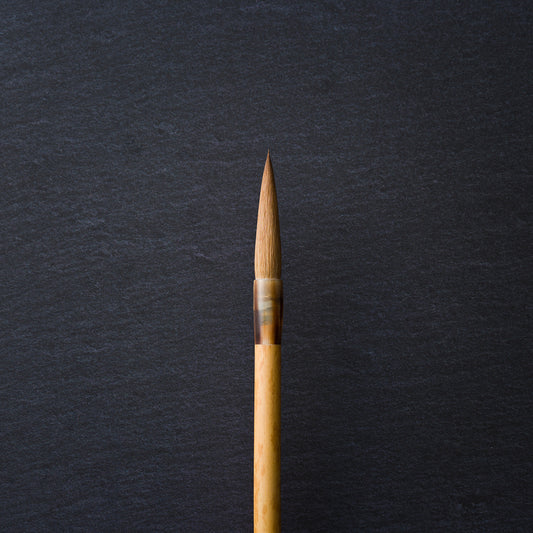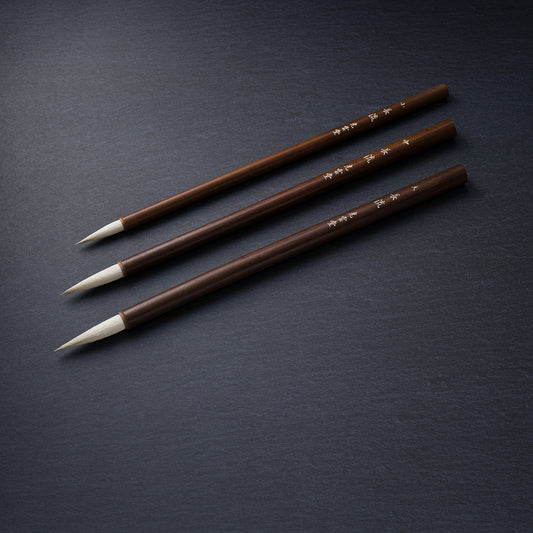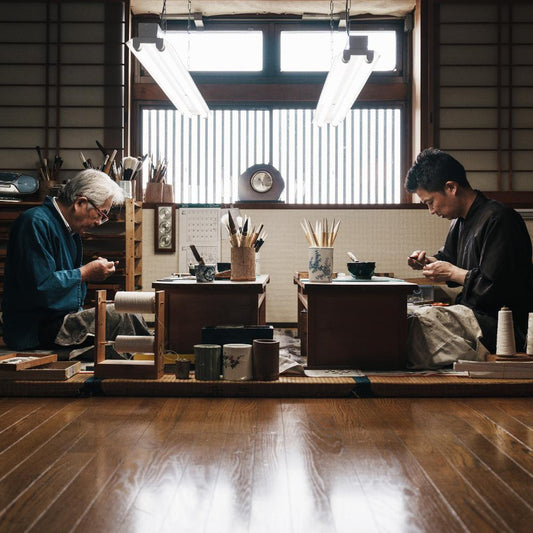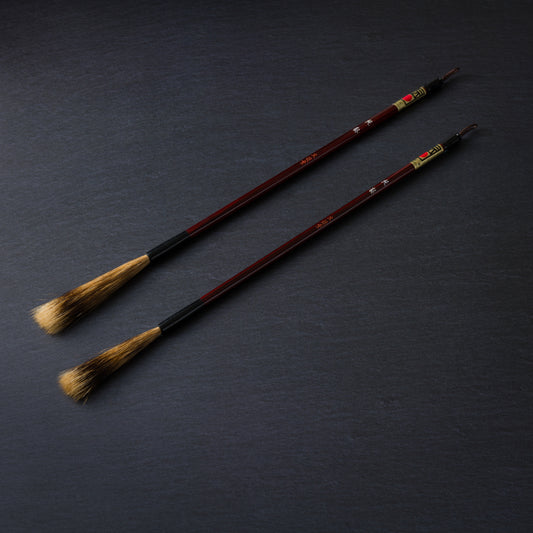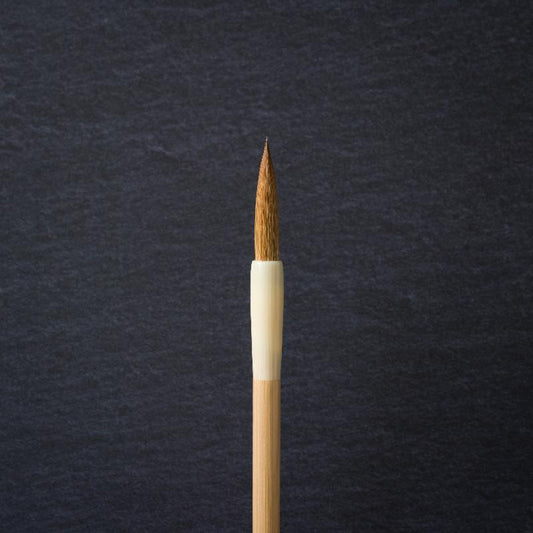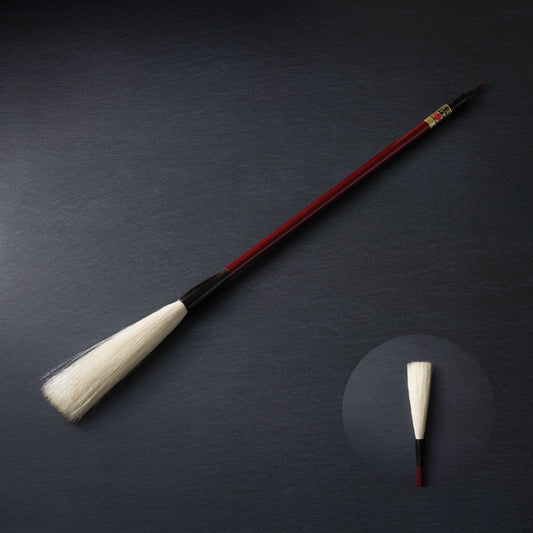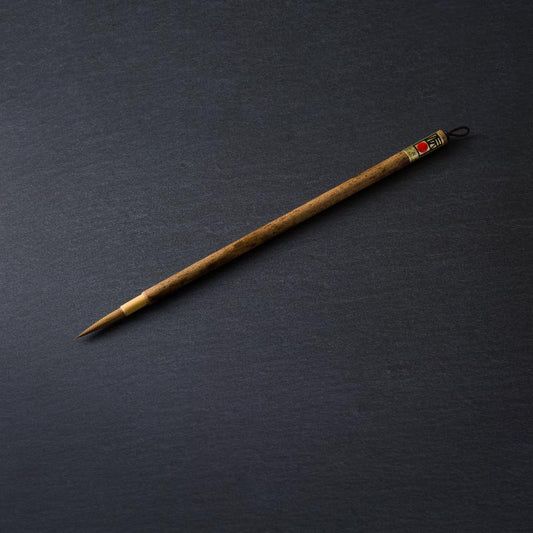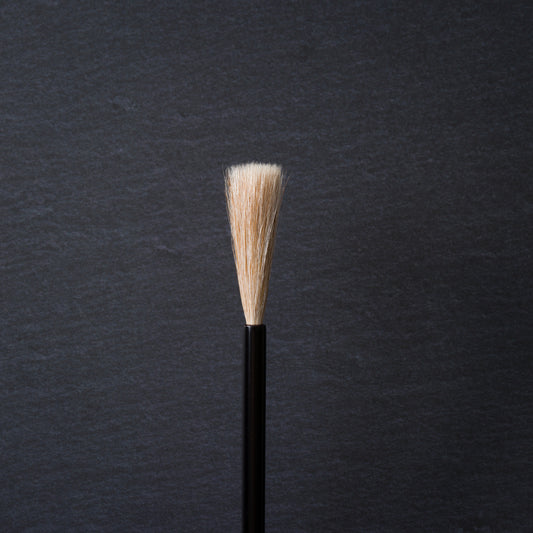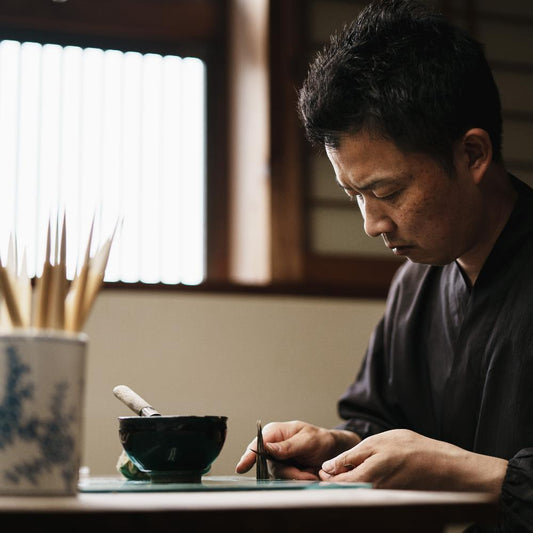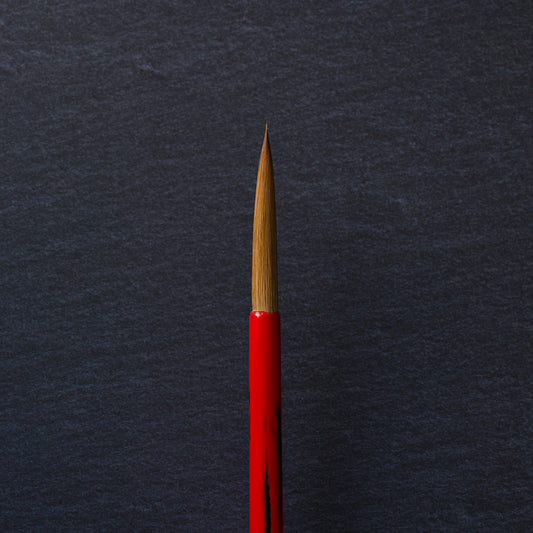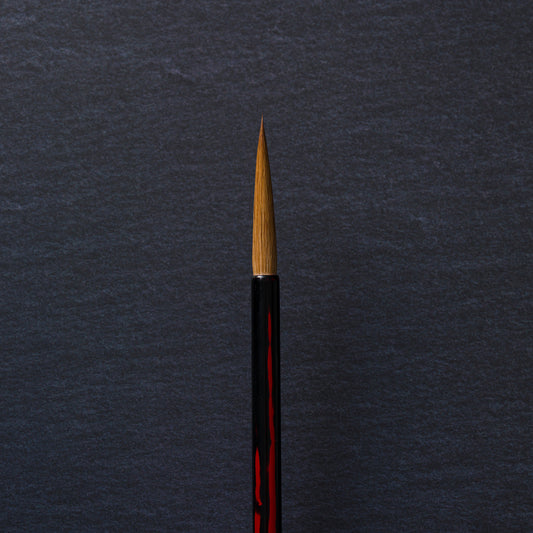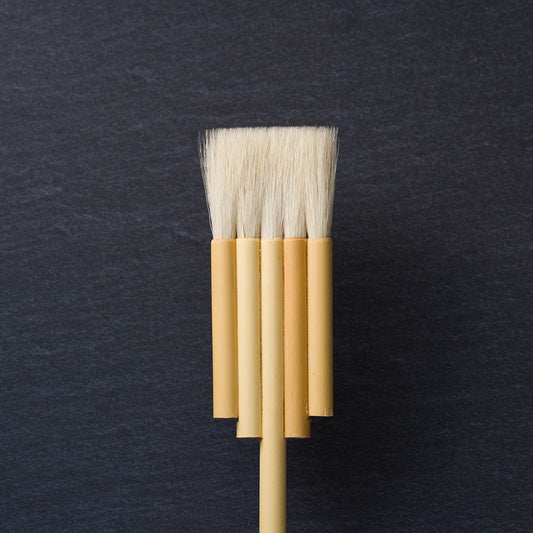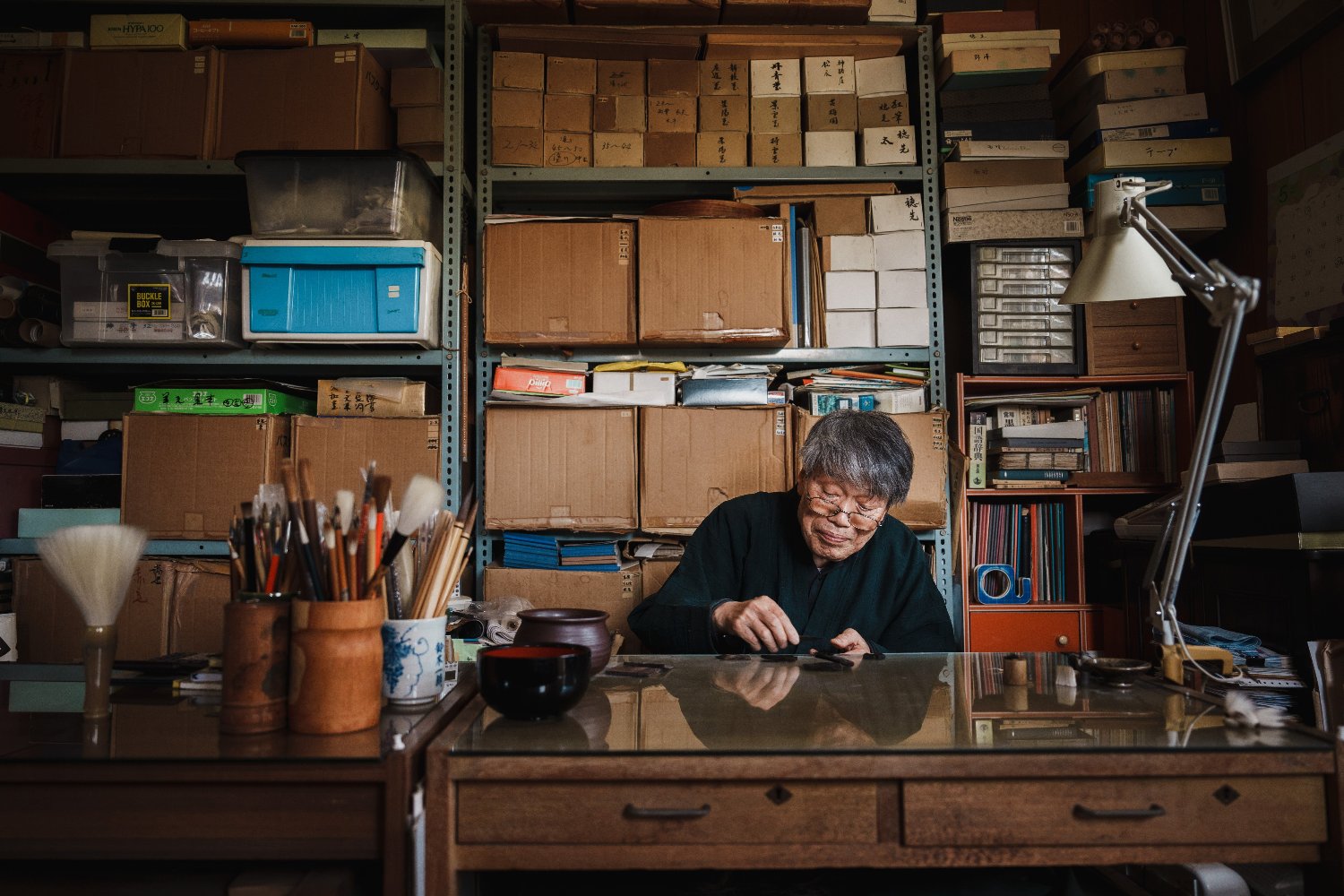
奈良筆伝統工芸士 Kazuo Suzuki
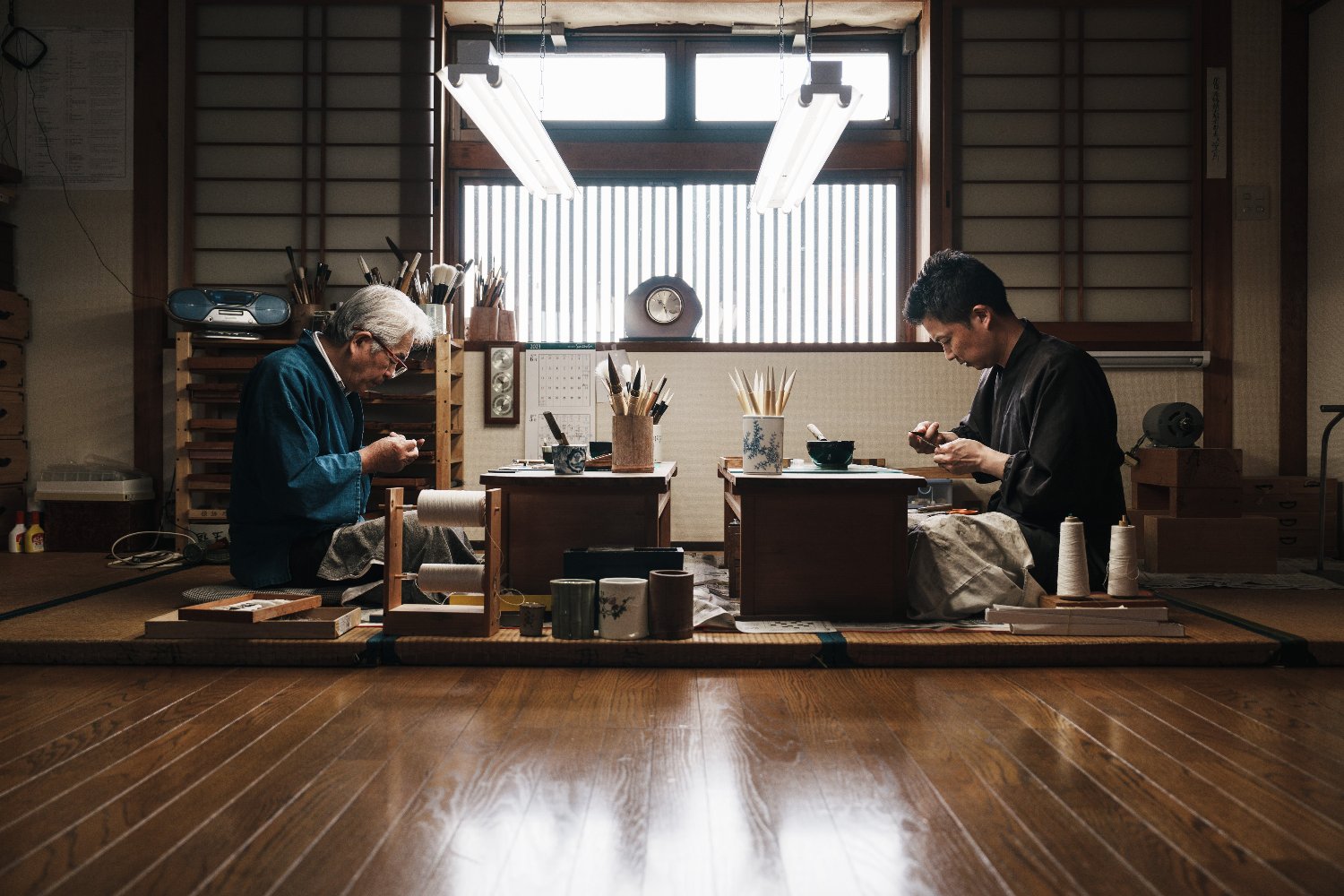
攀桂堂筆師 Junichi Fujino
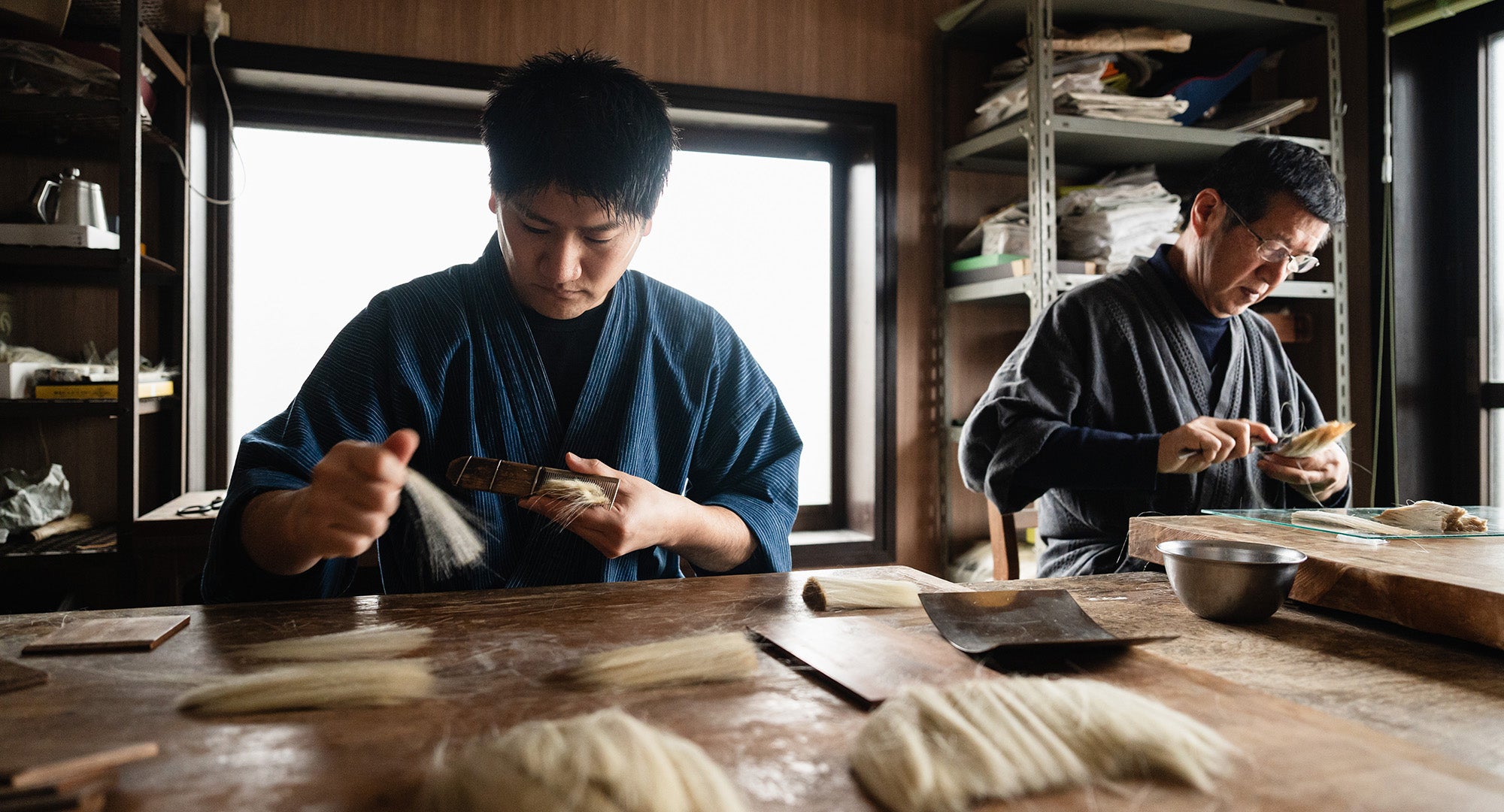
川尻筆伝統工芸士 Koso Hata
-
【NARA FUDE】 KASHIN for Suibokuga paintings
Regular price From $29.00Regular priceUnit price / per -
【HANKEIDO】SUMIE FUDE for Sumie paintings
Regular price From $28.00Regular priceUnit price / per -
【HANKEIDO】Maki Fude - RYUTOMAKI FUDE in a paulownia box.
Regular price From $113.00Regular priceUnit price / per -
【NARA FUDE】SAKUYO Fude for sumie and suibokuga paintings
Regular price From $24.00Regular priceUnit price / per -
【NARA FUDE】MENSO Fude Selection
Regular price From $14.00Regular priceUnit price / per -
【HANKEIDO】Maki Fude - Jakuto Fude (Sparrow-Head Brush)
Regular price From $29.00Regular priceUnit price / per -
【HANKEIDO】AMAO Tanpo Fude: highly recommended for ENSO writing
Regular price From $39.00Regular priceUnit price / per -
【HANKEIDO】Calligraphy brush - KENGO FUDE
Regular price From $27.00Regular priceUnit price / per -
【NARA FUDE】KASUI for Suibokuga paintings
Regular price From $67.00Regular priceUnit price / per -
【HANKEIDO】Calligraphy brush - NUKINA SUOH
Regular price From $29.00Regular priceUnit price / per -
【NARA FUDE】Calligraphy brush "KEIFUKU" (also known as "Devilish Brush")
Regular price $140.00Regular priceUnit price / per -
【HANKEIDO】Maki Fude - SHIBIEN
Regular price $36.00Regular priceUnit price / per -
【HANKEIDO】Maki Fude - TENPYO FUDE, suitable for copying sutras
Regular price From $93.00Regular priceUnit price / per -
【NARA FUDE】Calligraphy brush "SOKUTEN KYOSHI" (one of The Three Devilish Brushes)
Regular price $239.00Regular priceUnit price / per -
CHORYU: The Definitive Sumi-e Brush
Regular price From $25.00Regular priceUnit price / per -
【HANKEIDO】Calligraphy brush - Kana Fude selction
Regular price From $14.00Regular priceUnit price / per -
【KAWAJIRI】Calligraphy brush - MUJINA
Regular price From $106.00Regular priceUnit price / per -
【KAWAJIRI】Calligraphy brush - ISHIN
Regular price $93.00Regular priceUnit price / per -
【KAWAJIRI】KO SAI KOHO – Daruma Fude with Red-Tame Lacquer Handle
Regular price From $219.00Regular priceUnit price / per -
【KAWAJIRI】Well-aged Pure Kolinsky with Mottled Bamboo Handle
Regular price $193.00Regular priceUnit price / per -
【KAWAJIRI】Calligraphy brush - MABOROSHI
Regular price $285.00Regular priceUnit price / per -
rimpamura Original: The Beauty of Lines - Premium Fine Hair Drawing Brush Set
Regular price $60.00Regular priceUnit price / per -
【NARA FUDE】NEGORO-NURI (Kolinsky Long, Slender Head)
Regular price $67.00Regular priceUnit price / per -
【NARA FUDE】AKEBONO-NURI (Kolinsky Long, Slender Head)
Regular price From $53.00Regular priceUnit price / per -
【NARA FUDE】Renpitsu (Connected Brushes)
Regular price From $34.00Regular priceUnit price / per
-

筆 Brushes for Calligraphy
Too know more.Rimpamura offers a diverse selection of brushes, featuring various manufacturing methods, types of raw hair, and production regions. From calligraphy practice to artistic works, our collection supports a wide range of expressive needs.
-

筆 Brushes for paintings
To know more.Rimpamura has curated a selection of rare and precious brushes, carefully chosen for their exceptional quality and performance. Whether you're a beginner or an experienced artist, these brushes will elevate your painting experience to the next level.
-

筆 Enso Fude
To know more.Enso is commonly drawn by connecting the starting and ending points in one stroke to create a perfect circle. To draw a clean circle, maintain a consistent speed and focus on stable brush movement. Slowly and steadily draw one circle over a minute, feeling a unity between oneself and the brush while firmly grasping the paper.


